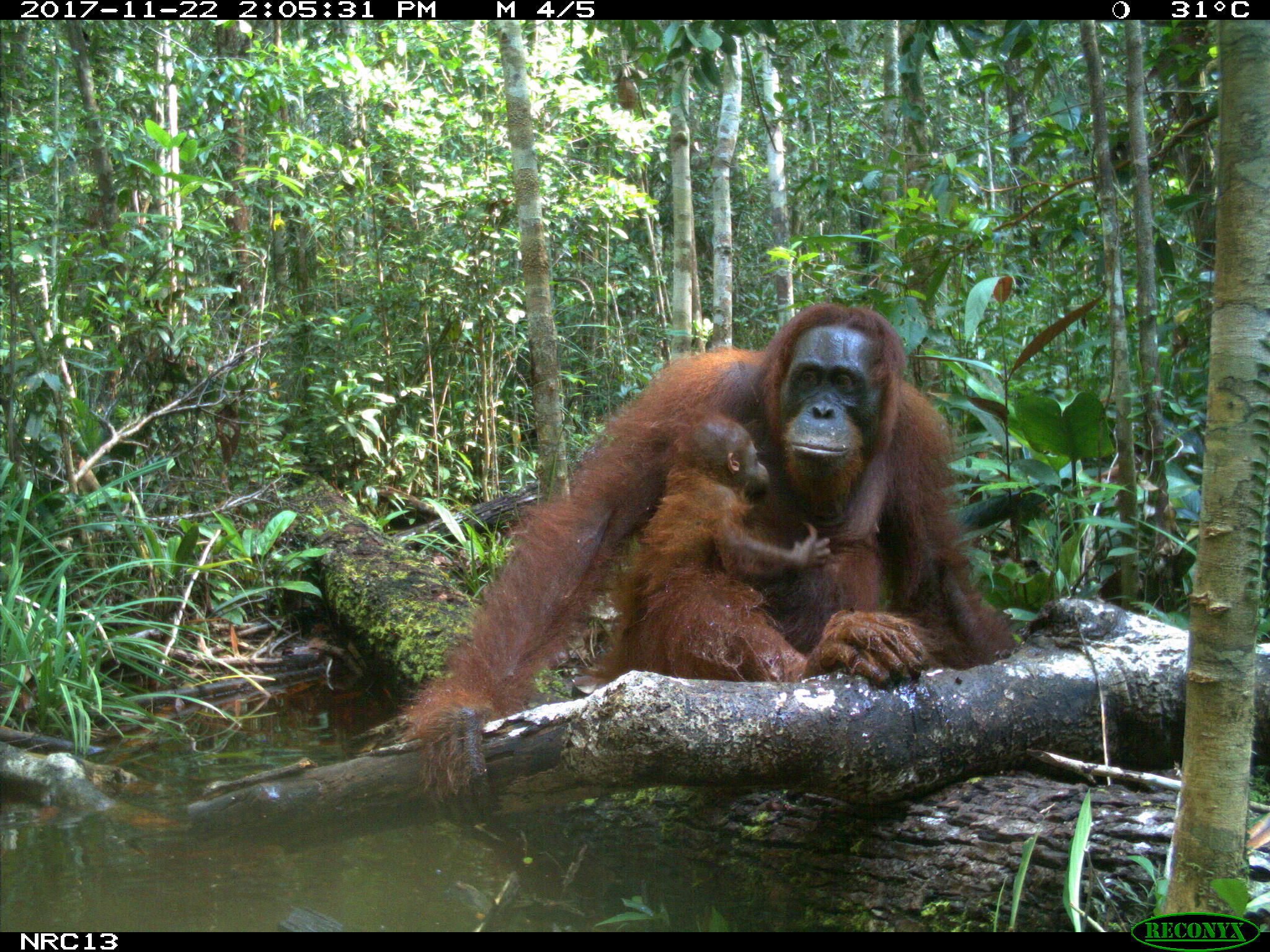For the longest time, I boycotted palm oil. Palm oil is notorious for destroying the habitats of wildlife, especially endangered orangutans. Of course it makes sense not to support a product that is so environmentally destructive. This seems so easy and straightforward! But so much in conservation is not straightforward and I was pretty shocked to find out that what I was doing could actually be worse for wildlife.
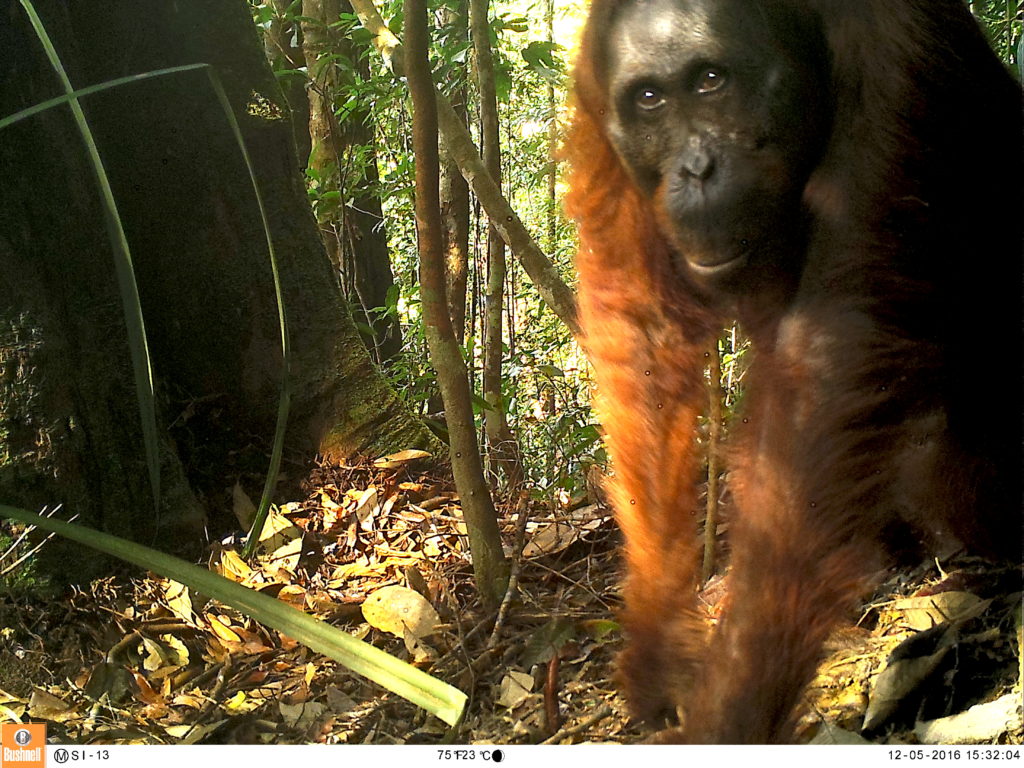
This blog post outlines my thought process leading to that decision and provides you with resources to make your own. Not all conservationists agree with me, and when I posted about this on Instagram and Twitter, I did get some pushback.
Why is Palm Oil Bad for the Environment?
I recently went to Borneo, Malaysia and saw the palm oil plantations for myself. I visited a rainforest reserve called Deramakot, home to orangutans, clouded leopards, and gibbons. On the way to the reserve, we saw miles and miles of palm oil plantations.
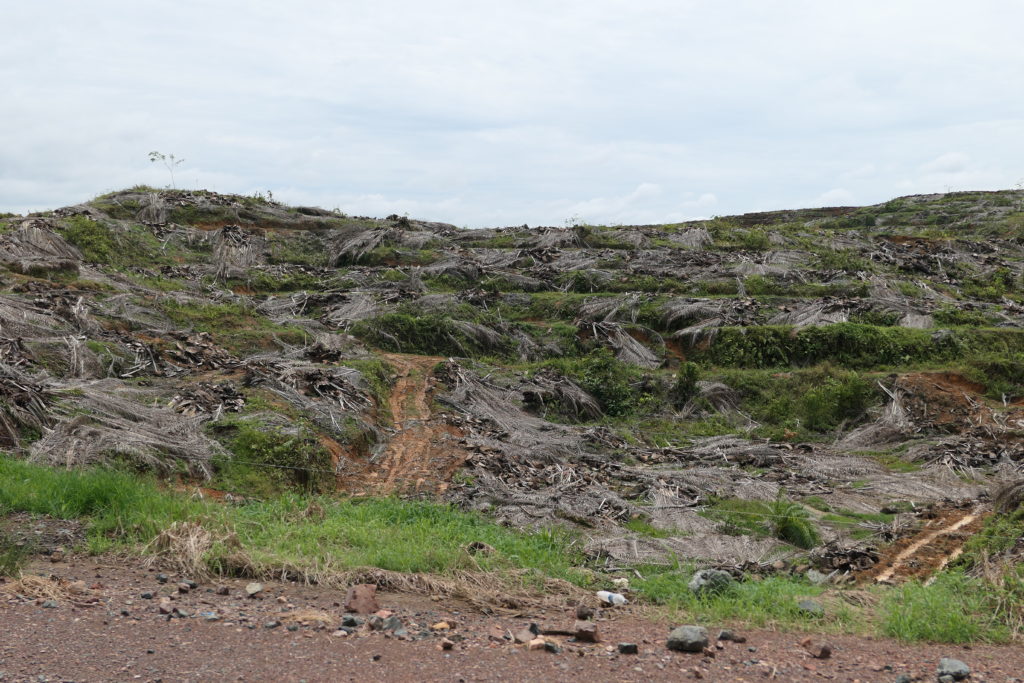
Basically, the palm oil industry clear cuts primary forests for palm oil plantations thereby removing habitat for endangered species like orangutans. Where once stood forests, now stands monocultures of palm oil trees.
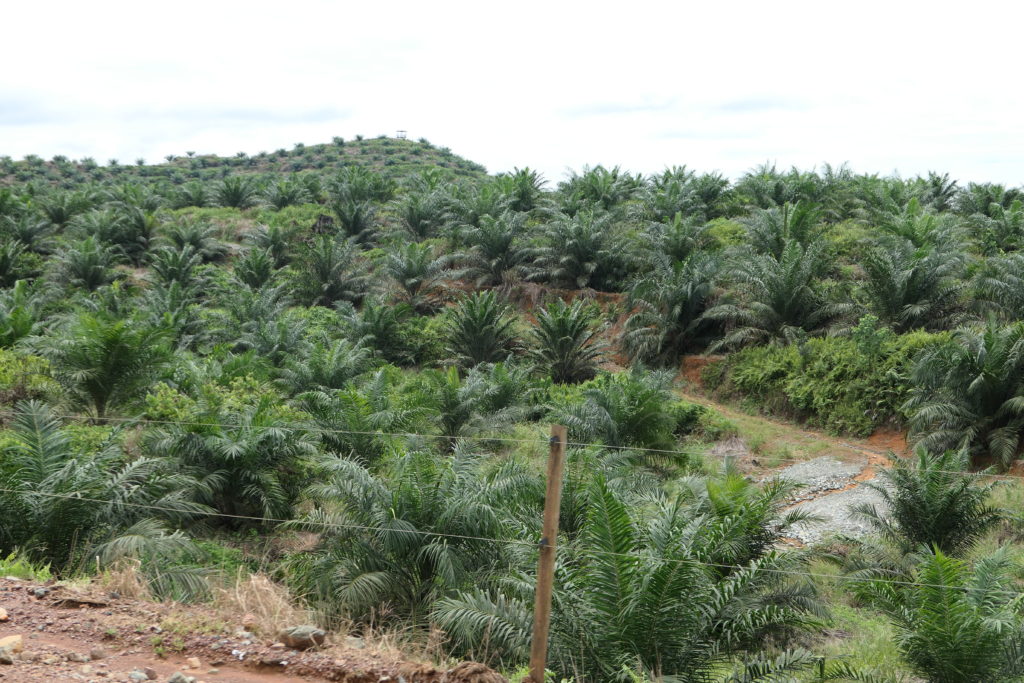
The palm oil tree is actually native to Africa, but most of the world’s supply (~85%) is grown in Malaysia and Indonesia, which is why orangutans have become an iconic species representing the destruction of this cash crop. Orangutans need forests with old trees. They build their nests and are adapted to living their lives high up in the tress. They are the largest arboreal mammal.
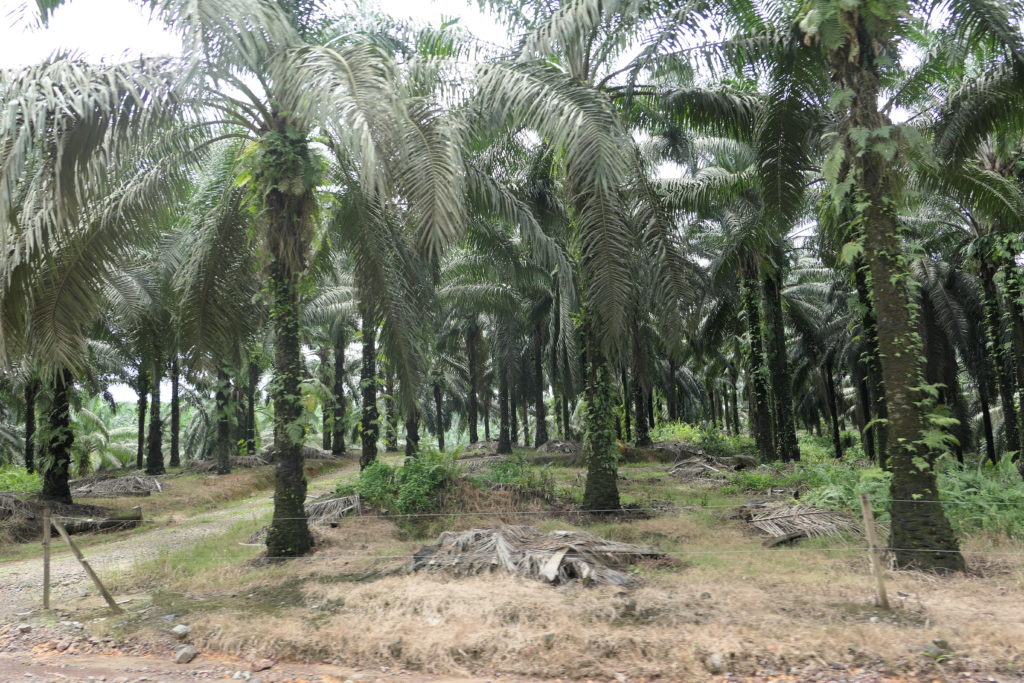
Palm oil is not just bad for wildlife, it’s bad for the whole planet. To clear the land for plantations, the rainforest is burned
Clearing land for palm oil plantations involves burning rainforest, which is obviously bad for wildlife, but ultimately bad for us too. Burning trees and peatland releases carbon in the atmosphere, which contributes to climate change. Not only does the burning release large amounts of carbon, but the loss of forest and peat also prevents carbon in the atmosphere from being absorbed. Both forests and peat are major carbon sinks.
Why Boycotting Palm Oil Won’t Work
Now that we know how bad palm oil is, our gut reaction is to never buy this awful thing again (that was definitely mine)!
Before my trip to Borneo, I was at the International Conference in Conservation Biology in Kuala Lumpur, Malaysia and met experts from the Cheyenne Mountain Zoo who were at the conference to talk about palm oil. Before talking to them, I assumed that avoiding palm oil all together, or reducing your consumption, was the best thing that you could do, but they told me that was wrong. Here’s why:
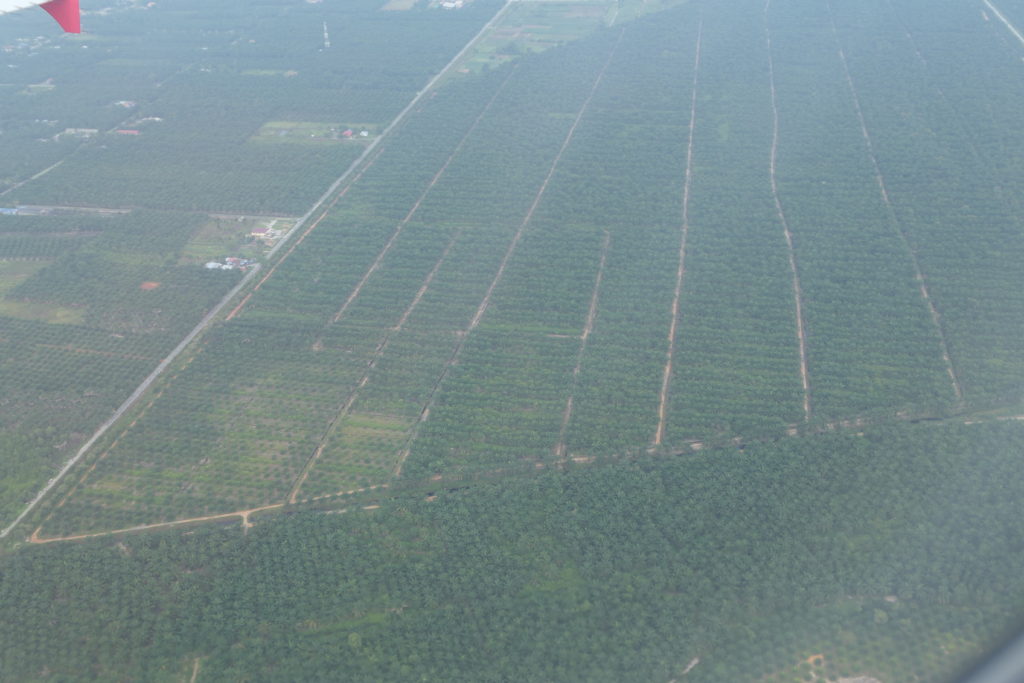
1. Boycotting Palm Oil is Impossible for Most People
I tried to boycott palm oil for the longest time. For me, it was pretty easy because I don’t eat many processed foods. Or so I thought. But palm oil is in everything!
From cosmetics to ice cream to biodiesel and everything in between (I found out my skin care and makeup products contained palm oil). But I still thought I was doing good because these were the only palm oil products I thought I was using, and they are from a company that uses sustainable sourcing of ingredients.
What I didn’t realize is that palm oil could be called by so many other names! You can buy palm oil without even knowing it. Here’s a list of ingredients that come from palm oil:

Checking all of my products for these ingredient names would be extremely difficult and time-consuming for me – and I devote my whole career to nature and conservation. Even if everyday consumers had good intentions and want to avoid palm oil, this giant list makes it quite honestly, prohibitive. Palm oil really is in everything!
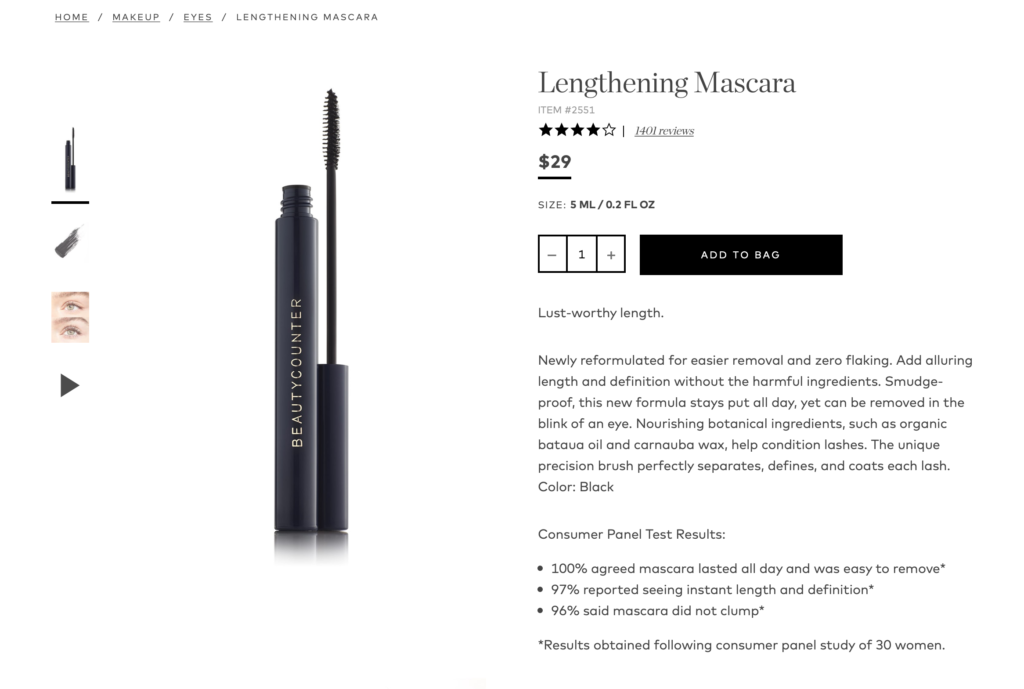


2: The Alternative to Palm Oil Could Be Much Worse
Say we do all join together and stop buying palm oil. This crop is no longer profitable, palm oil plantations go out of business, and people stop planting it, which means no more clearcutting of forests. This sounds amazing, except it’s not going to happen.
The reason why people cultivate palm oil in the first place is to make money. People in Indonesia and Malaysia need to make money to support their families and options for doing so are limited. They won’t just suddenly start protecting the forests, they are going to move on to the next crop that is profitable.
Despite palm oil’s bad rap, it has some advantages over other crops. Palm oil produces at least three times as much yield as any other crop while using fewer pesticides and chemical fertilizers than other vegetable oils.
This statistic sums it up pretty well: “Palm oil makes up 35% of all vegetable oils, grown on just 10% of the land allocated to oil crops.”
If palm oil is boycotted, global demand for an oil is not going to go down (remember that palm oil is in everything). Companies will need an alternative oil source, and this will result in MORE forest loss to plant these crops.
What Should You Do?
Buy Sustainable Palm Oil
There is an alternative – CSPO or Certified Sustainable Palm Oil. The Roundtable on Sustainable Palm Oil develops environmental and social criteria for companies to comply with to have CSPO. The World Wildlife Fund argues, that “when cultivated properly and planted in the right places, production of palm oil would not negatively impact the environment.”
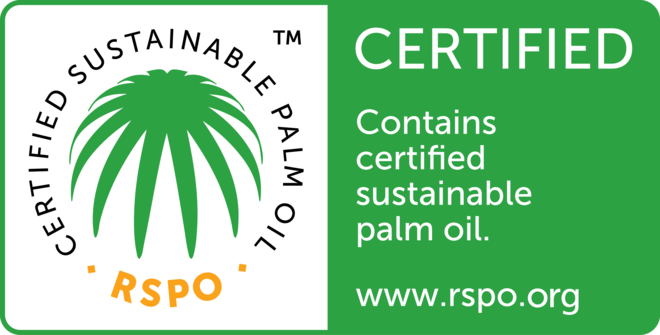
CSPO palm oil has the following outcomes/requirements:
- Fair working conditions
- Protected land and rights for local people
- No clearing of primary forest
- Wildlife is protected on palm oil plantations
- Reduced greenhouse gas emissions
- Minimized industrial pollution
As of 2014, roughly 20% of all palm oil growers are certified, however, selling sustainable palm has been more challenging. Because palm oil is such a taboo ingredient due to its environmental destruction, companies are hesitant to draw attention to the fact that they use palm oil at all, even if it is sustainable. If the public is not actively looking for or demanding sustainable palm oil, companies are not going to pay the premium to get it, and this could increase demand for regular palm oil because realistically, most people will not boycott palm oil.
How Do I Buy Sustainable Palm Oil?
Cheyenne Mountain Zoo Sustainable Palm Oil Shopping App
There are some great tools to help you determine if the companies that you shop from use CSPO. I’ve found that rarely is the RSPO logo on products. The first that I love is the Cheyenne Mountain Zoo Palm Oil app. I use this ALL the time. This app is great because when you are in the grocery store you can check products before you put them in your cart.
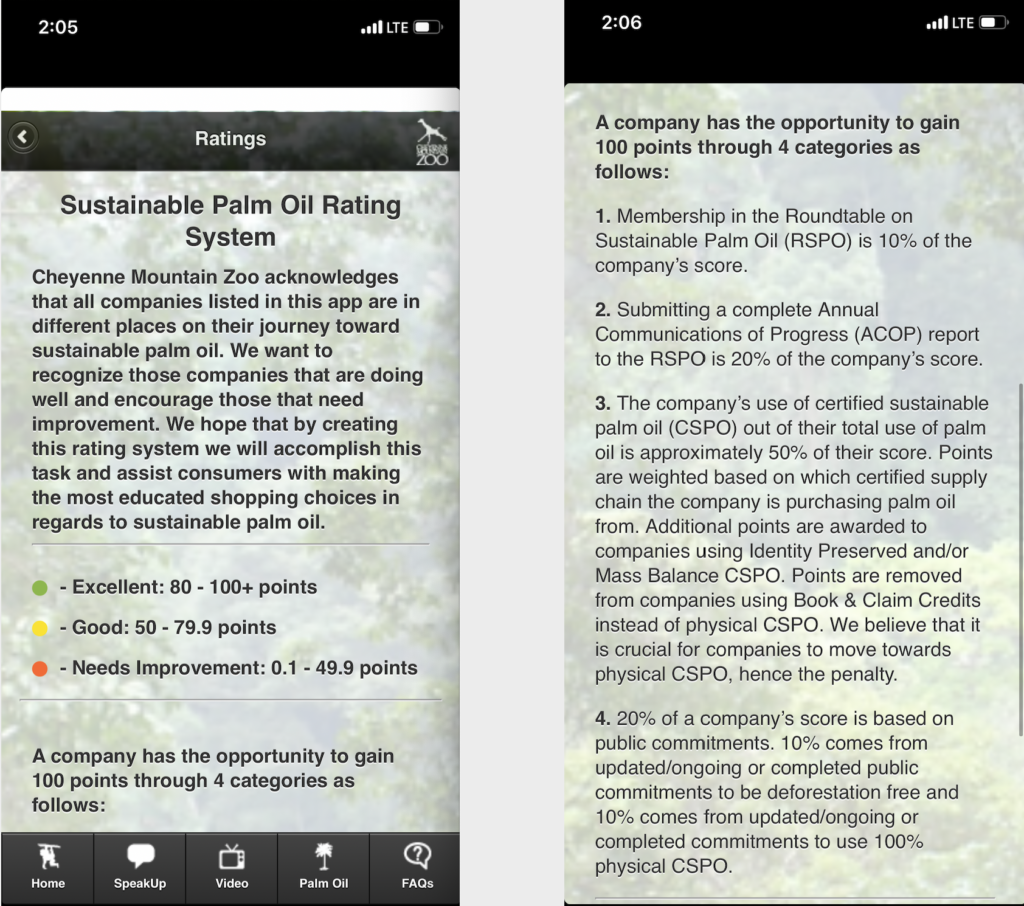
To learn how to use the palm oil app, check out this video!
WWF’s Palm Oil Buyer’s Scorecard
Another great resource is WWF’s Palm Oil Buyer’s Scorecard. Like Cheyenne Mountain Zoo’s app, you can search for your favorite brands and see how they rank.
If a company you love does not use RSPO, both the app and the website give you opportunities to pressure them to do so. The Cheyenne Mountain Zoo app has a sample letter that you can copy to send to companies and WWF’s website has a social share option so you can tweet their report and encourage them to switch to RSPO.
Arguments Against RSPO
It Doesn’t Go Far Enough
Some people are still not happy with RSPO and will not support it. They argue that there is no such thing as sustainable palm oil because even though wildlife and habitat is taken into account, forest is still destroyed, and it is still a monoculture plantation. Other concerns include that deforestation is only restricted to “high conservation value areas,” and palm oil that is still RSPO certified can be mixed with uncertified palm oil, yet the company can still get the certification.
Is There Evidence That it is Actually Better Than Uncertified Palm Oil?
Someone on my Twitter account doubted the actual impact of RSPO. He wrote:
is there any actual evidence "sustainable" palm oil does any good for biodiversity conservation? I haven't seen it. – https://t.co/0uFYU9OxhE
— Andy Boyce 👨🔬🐦 (@AndyJBoyce) October 5, 2019
And linked to this paper, which found no significant differences between RSPO and regular palm oil in relation to orangutan presence and fire (their measures of environmental sustainability. However, this study found that RSPO certification is associated with a significant decrease in deforestation, and this study found a decrease in fire incidence.
Also, although RSPO was started in 2003-2004, certifications for plantations actually didn’t start until 2009. Including deforestation and fires measures pre-2009 (pre-certification) is not a fair assessment of how well RSPO plantations perform.
Gemma Tillack wrote “Why ‘Roundtable on Sustainable Palm Oil (RSPO)’ palm oil is neither responsible nor sustainable,” but offers no solutions.
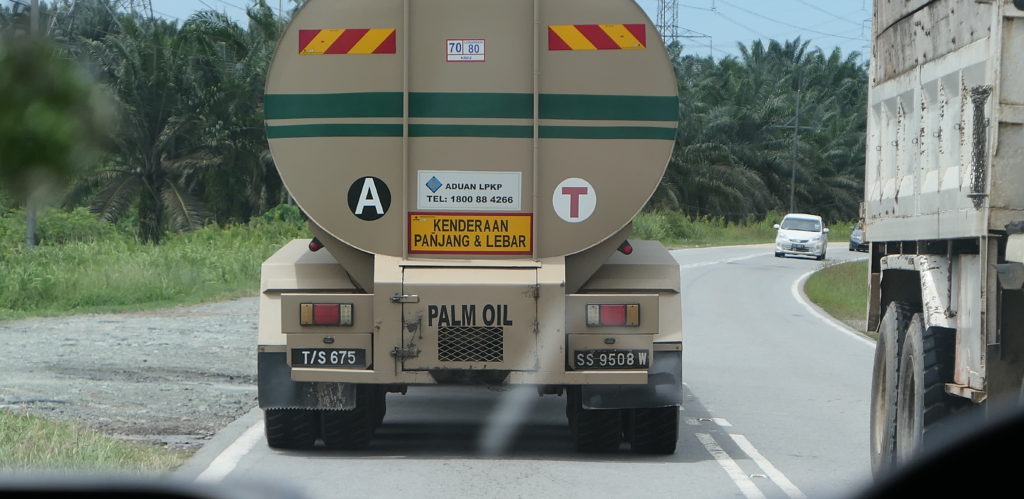
It’s Members Aren’t Sustainable
On my Instagram, someone commented “From what I’ve heard from places like Palm Oil Consumer Action is that the Chairs of the RSPO are companies like Nestle and Unilever, which use some of the most unsustainable palm out there. For me personally, my boycott is more of a stand against those companies that until they stop being so corrupt and become truly sustainable, I can’t buy anything RSPO certified when such high up members are not actually sustainable!
This is true that the companies that are members are not the most sustainable out there, however, I strongly believe in not letting progress be the enemy of perfection. In order to move forward with sustainability efforts, we need to include big companies to be effective. Otherwise, it won’t make that much of an impact for companies to actually want to buy it if it is too unattainable and the market will be so small. It’s already harder to sell sustainable palm oil.
It’s fine that you don’t want to support specific corporations because of your opinions on their company’s sustainability, however, I wouldn’t let that write off CSPO completely. And the only other options are boycotting palm oil, which is impossible for most people, which would then make CSPO less desirable, increasing the demand for regular palm oil, or alternative oils that use more land and do just as much environmental damage.
The RSPO is a non-profit organization that is made up of big companies, but it also includes conservation organizations that are compromising with companies to make them more sustainable. It may be less sustainable or slower progress that we like as conservationists, but it’s better than nothing. For more on the RSPO, check out this video:
I Support CSPO and Won’t Boycott Palm Oil
So, in an ideal world, we would save the forests and we wouldn’t need palm oil. But life doesn’t work that way. In my opinion, sustainable palm oil is the best answer to support people and wildlife.
Michelle Desilets’, Executive Director of the Orangutan Land Trust, sums this up well: …While no monoculture could ever be considered truly sustainable, I think we must consider that there is a spectrum of sustainability, and sustainable palm oil (for example that which is not grown as a result of forest clearance) is an infinitely better option than non-sustainable palm oil.
If you want to continue to improve your diet to make it more sustainable, check out “5 Easy Changes to Your Diet to Help the Planet.”
A big thank you to Chelsea Wellmer and Emmaline Repp-Maxwell of the Cheyenne Mountain Zoo for their help with great resources to write this blog post.
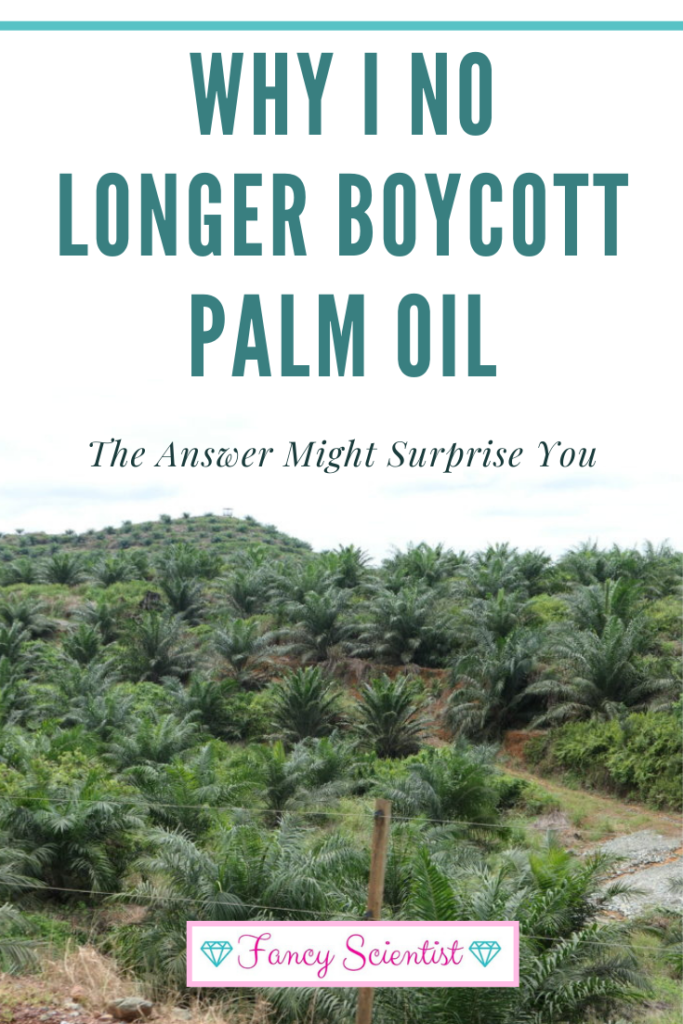
Love this post? Share it with friends!

